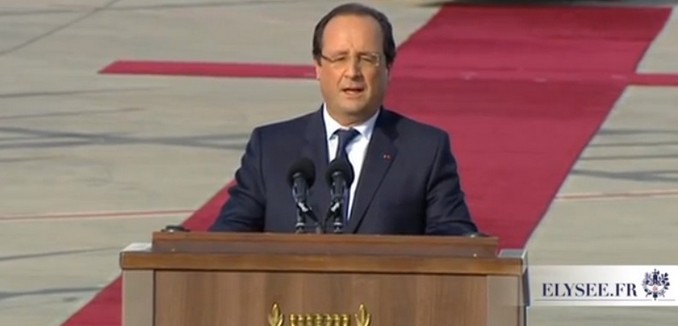Two weeks ago French objections to what the country’s Foreign Minister Laurent Fabius described as a “sucker’s deal” reportedly contributed to blocking a deal between the P5+1 and Iran that would have swapped limited Iranian concessions for relief from international sanctions.
Last week Patrick Maisonnave, France’s ambassador to Israel, outlined the main guarantees that France was demanding. Regarding Iranian progress toward a uranium-based bomb, Maisonnave demanded more robust enrichment restrictions and rejectted Iran’s claim that it has a right to enrich nuclear material on its soil, the latter view being in line with analysis from legal experts, think tank scholars, and U.S. lawmakers. Regarding Iran’s progress toward a plutonium-based bomb, Maisonnave emphasized the French demand that work cease at Iran’s Arak facility, which houses a heavy-water production facility and a reactor.
Over the weekend it was the turn of France’s President Francois Hollande:
“France is in favour of an interim agreement but on the basis of four points,” he said at a joint news conference with Netanyahu. “The first demand: put all the Iranian nuclear installations under international supervision, right now. Second point: suspend enrichment to 20 percent. Thirdly: to reduce the existing stock. And finally, to halt construction of the Arak (heavy water) plant. These are the points which for us are essential to guarantee any agreement.”
Before the French intervention at Geneva two weeks ago, Iranian negotiators were said to have worked out language that would have allowed Iranian scientists to continue bolstering the facility. In exchange Tehran would have committed to not turning on the reactor for six months, something that Tehran had already declared it wasn’t going to do anyway. This aspect of the agreement in particular led to comments by Fabius describing a “fool’s game” at the talks.
Once a plutonium reactor goes “hot” it becomes functionally impervious to military attack due to expected fallout, and it produces two bombs’ worth of plutonium per year.
[Photo: babaz2 / YouTube]




